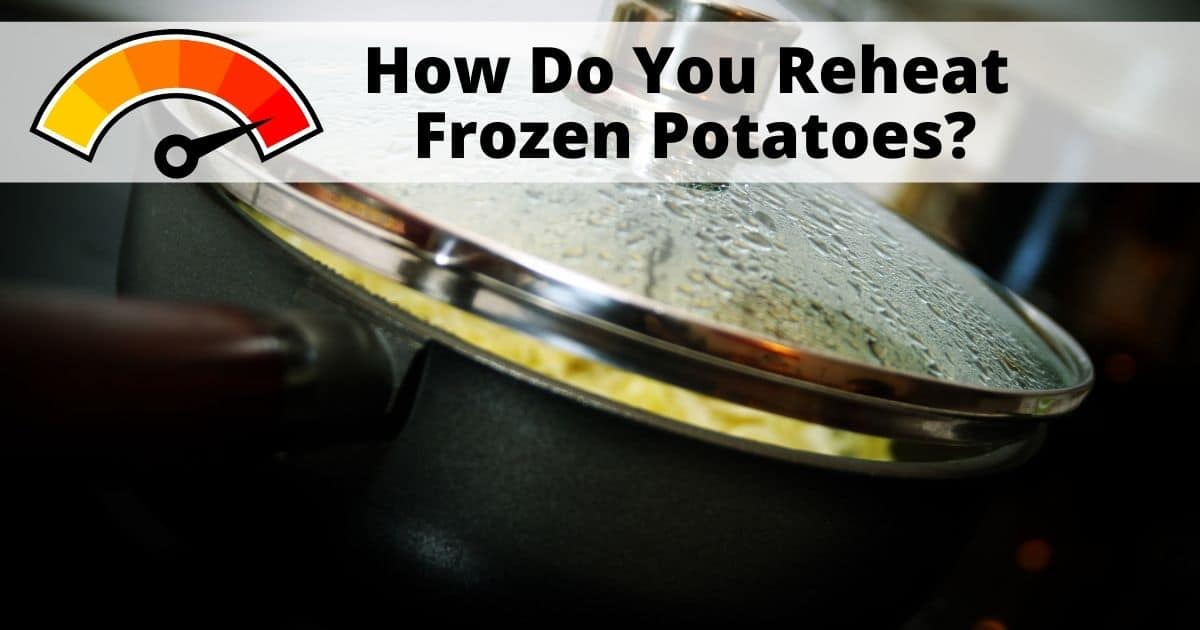Can You Freeze Potatoes? Here’s All You Should Know
If you told me I could take only one vegetable to an uninhabited island (that happens to have a fully-fitted kitchen!) for a year, I would not hesitate to tell you I would choose potatoes.
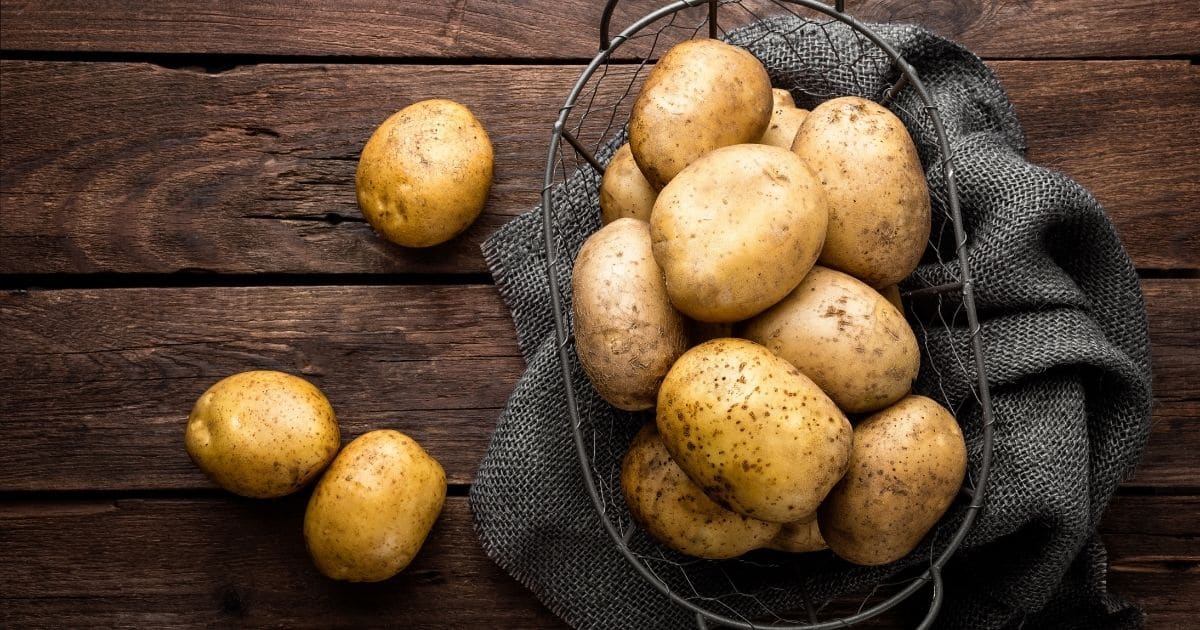
They are a versatile root vegetable packed with nutrients, and I find them incredibly filling. Moreover, there are thousands of varieties of potatoes, which would ensure they maintained their appeal.
Can You Freeze Potatoes?
There is even more great news about the staple potato, and that is it can be frozen. Yes, you can freeze potatoes. If you’re pushed for time or cannot think of what to cook, having some pre-prepared, partially cooked potatoes that can be instantly cooked could potentially be a life-saver (in the meal department, at least!).
Whether you’re after a mashed potato side for Thanksgiving or roast potatoes for Christmas Day, the ability to freeze prepared potatoes with no detriment to their flavor or texture is undoubtedly a win-win for everyone.
I was also pleased to discover that you can freeze potatoes for months prior to eating them and still get all of their deliciousness and nutritional benefit. This is ideal for people, like me, who can get a bit overwhelmed when cooking for large numbers, as it means I can prepare my potatoes in advance.
Like the idea of saving time and money? Fed up with being tied to the kitchen for hours on end when family and friends gather for a meal? Well, look no further. Here I will reveal all the secrets you need to freeze potatoes successfully in whatever size or shape you desire.
Can You Cut Up Raw Potatoes And Freeze Them?
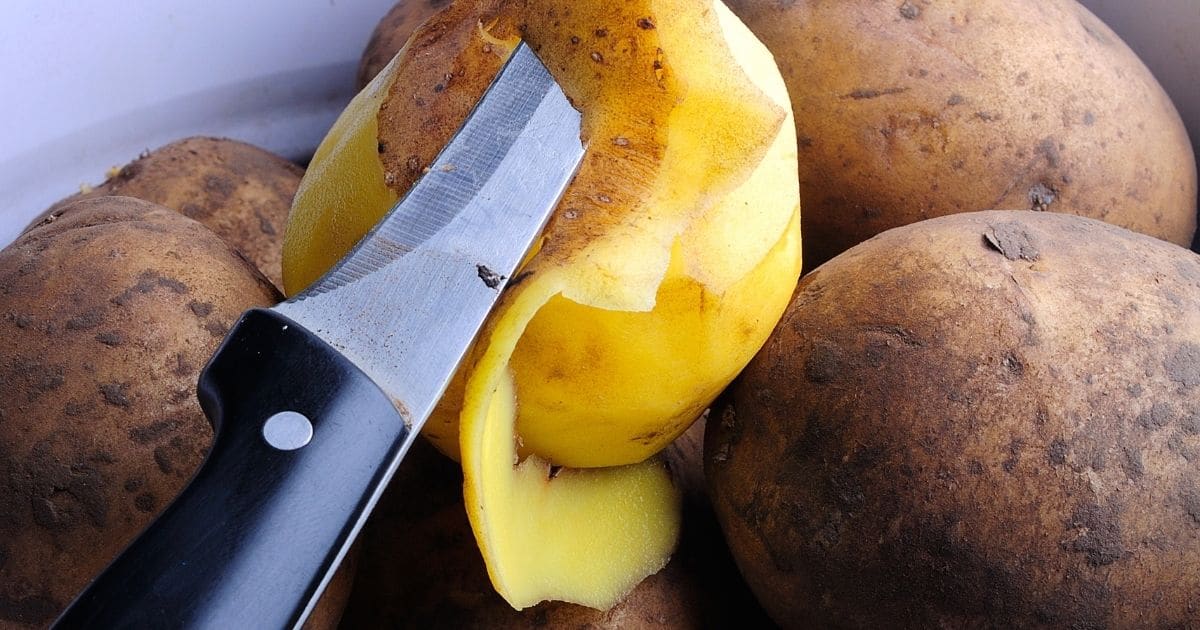
No, it is not recommended that you cut up raw potatoes and freeze them. The reason behind this is that potatoes have a very high water content which means they don’t freeze well and can turn soggy, watery, and potentially gritty once thawed.
In fact, if you freeze raw potatoes, each drop of water will crystallize. Consequently, upon thawing, the structure of the potato will deteriorate considerably, leaving you with a mushy mound.
In addition to the high water content of the potato is the enzyme activity that naturally occurs in most vegetables if they are frozen in their raw state. This enzyme activity, coupled with the high water content, will result in the potato losing flavor, color, and texture over time.
If you want to ensure you preserve the taste, quality, structure, and color of your potatoes, it is best that you do not freeze them raw.
Do I Have To Blanch Potatoes Before Freezing?
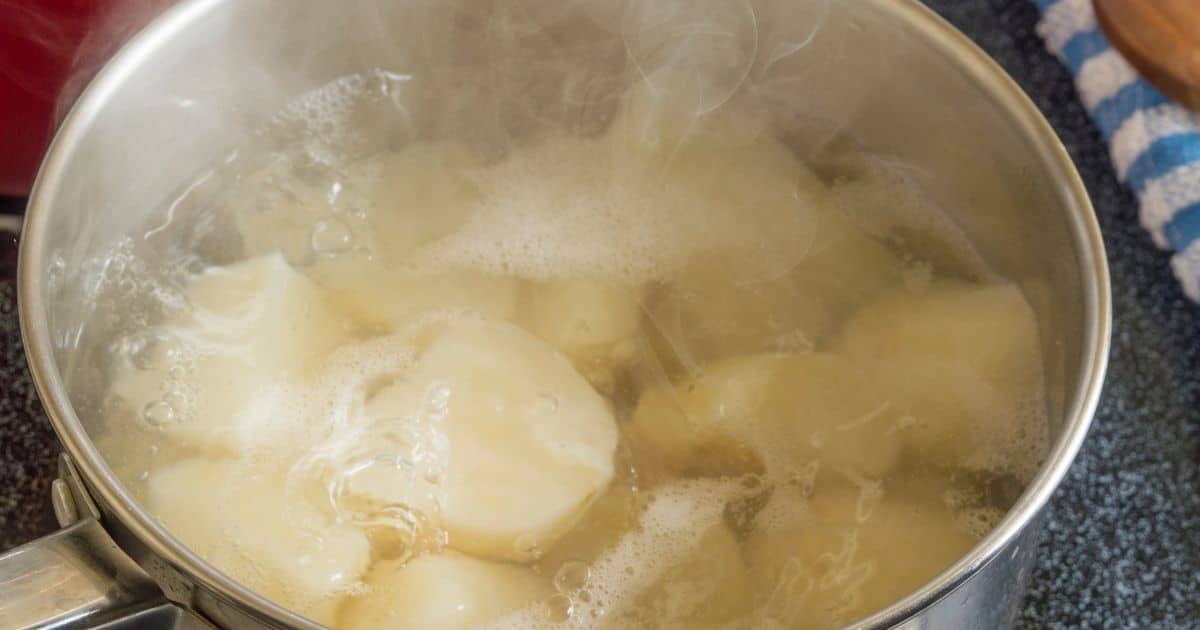
The simple answer to this question is, Yes, you do have to blanch potatoes before freezing.
By blanching the potatoes prior to freezing, you will interrupt the natural enzyme activity, which would continue with your potatoes in the freezer. This enzyme activity, as previously stated, would lead to discoloration, impairment of flavor, and a reduction in the structure of your potato.
With a little preparation, in the form of blanching your potatoes before freezing, you will ensure that your potatoes maintain their structure, flavor, color, and nutritional value.
How Do You Prepare Potatoes For Freezing?
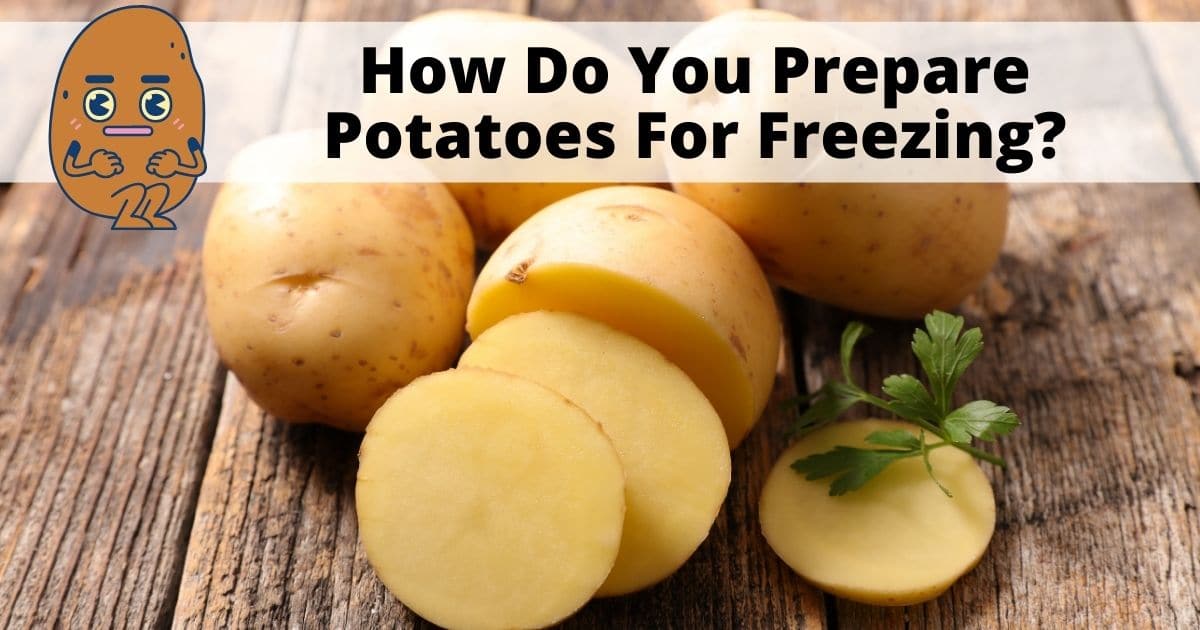
The partial cooking or blanching of potatoes is the best way of preparing your potatoes for the freezer. This may seem like a time-consuming step but it is necessary to preserve the quality and taste of your potato.
Also, by beginning the cooking process, you will save time and oven-space (especially important during big holidays) when the time comes to eat them.
Having chosen fresh potatoes, cleaned and chopped them (unless leaving them whole) to your desired size, you are ready to begin the blanching process. Skins can be peeled or left on. I like to leave them on, where possible, as I love their taste.
Follow these steps on how to prepare roast potatoes for freezing:
Step One
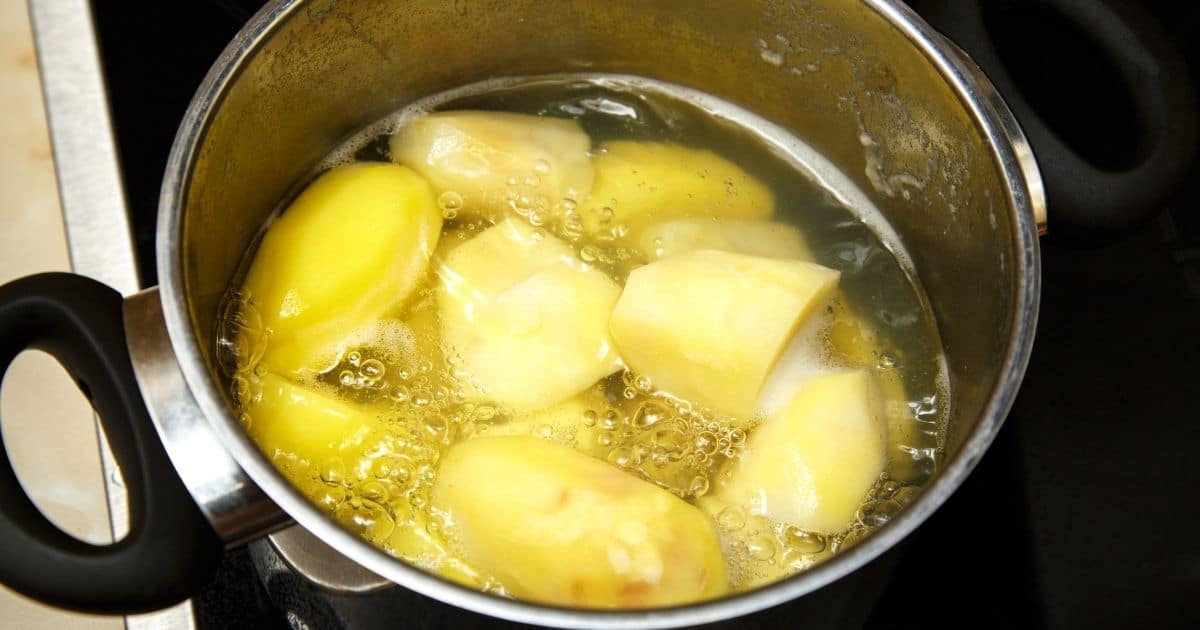
Blanch your cut potatoes in boiling water until they are tender but still have some bite. The time to blanch your potatoes will vary according to their type and size, but it can take somewhere between 3 to 5 minutes.
The important thing to note is that you don’t cook the potatoes fully.
Step Two

Drain the potatoes, then submerge them into a bowl of ice water to halt the cooking process.
Note: this process must be done immediately after removing the potatoes from the heat. Otherwise, they will carry one cooking.
Step Three
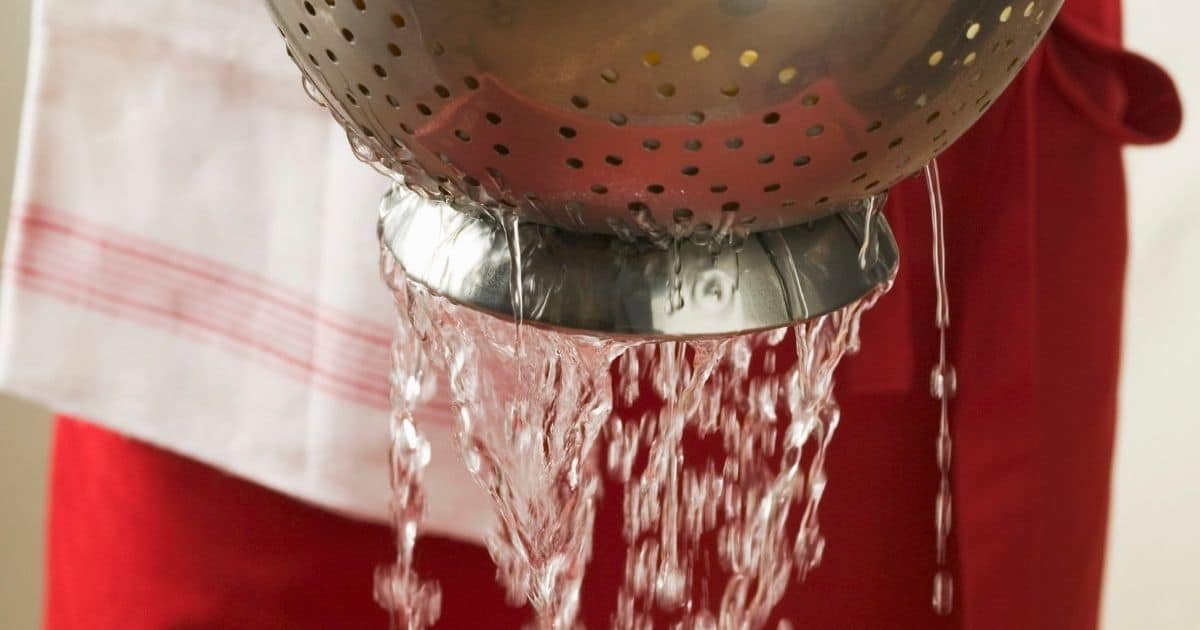
Drain the potatoes again and let them cool entirely.
Step Four
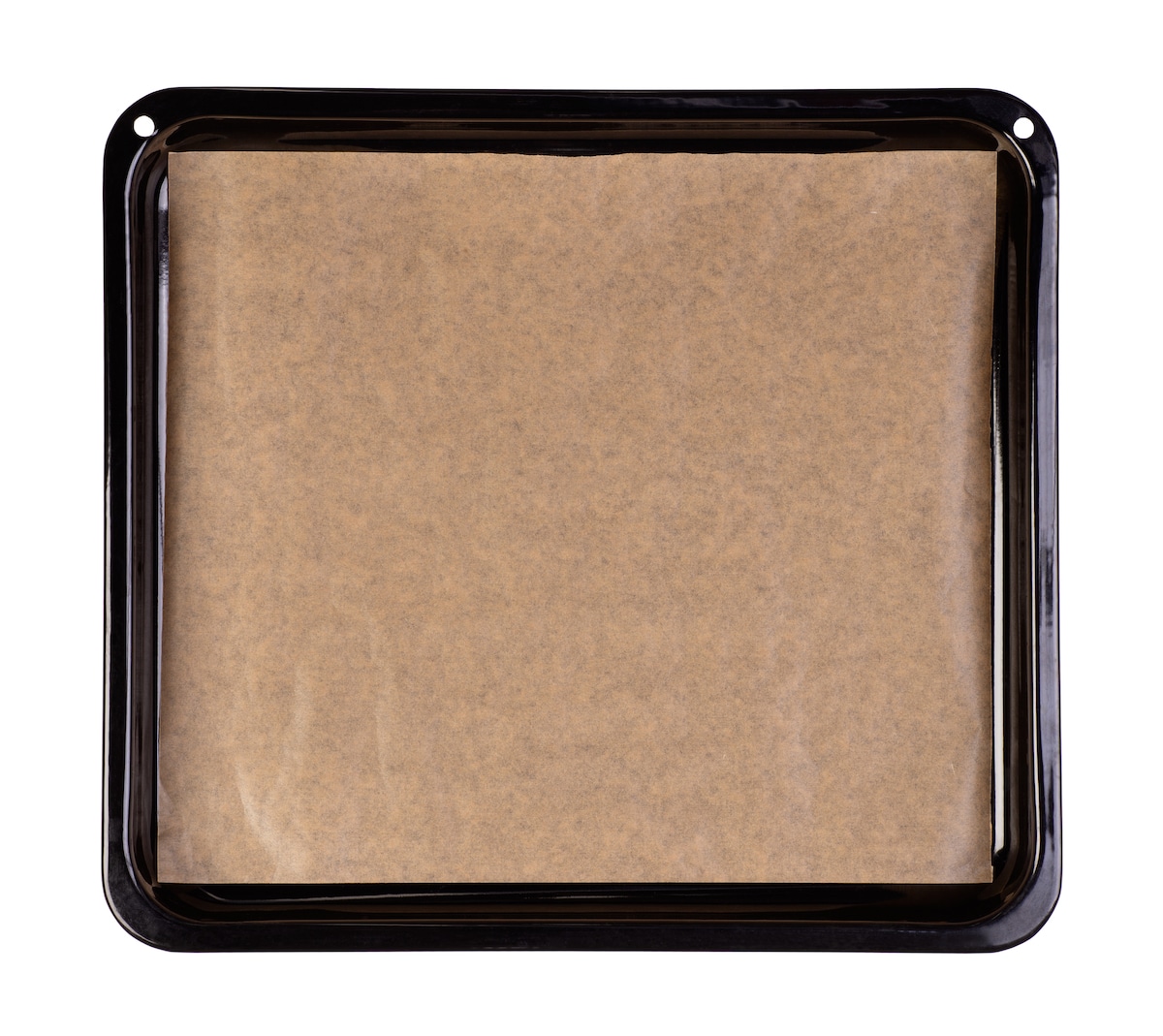
Spread the potatoes out across a baking sheet. Make sure they are not touching and then freeze for 6 to 12 hours.
Step Five
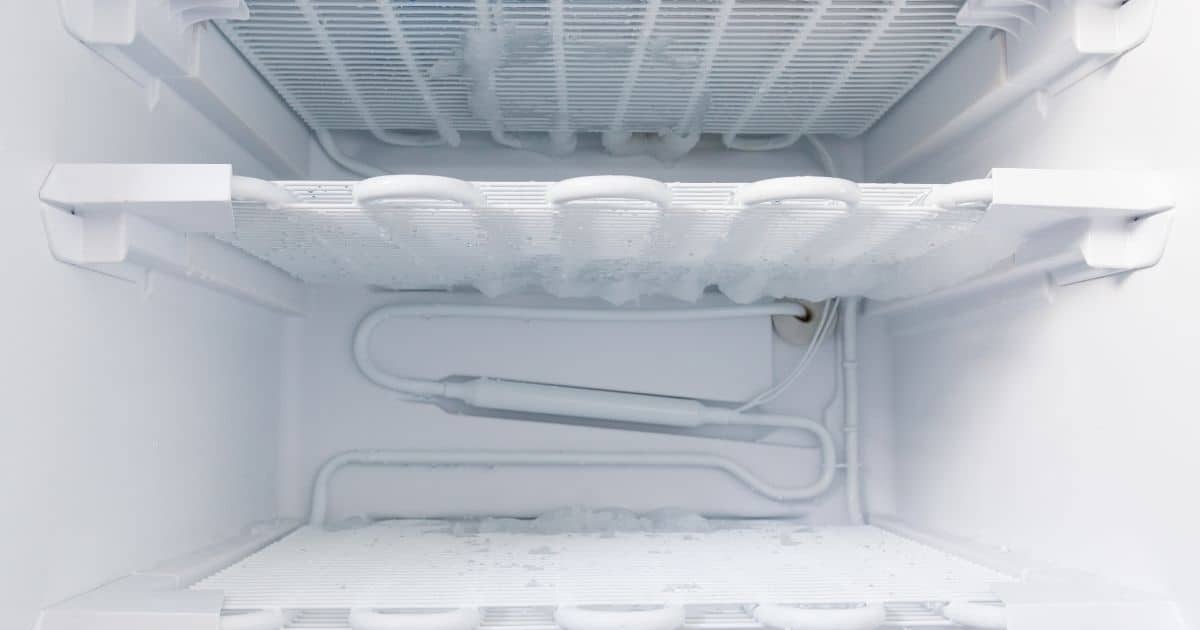
Transfer the potatoes into airtight freezer bags. Freeze for up to 3 months.
How Do You Prepare French Fries For Freezing:
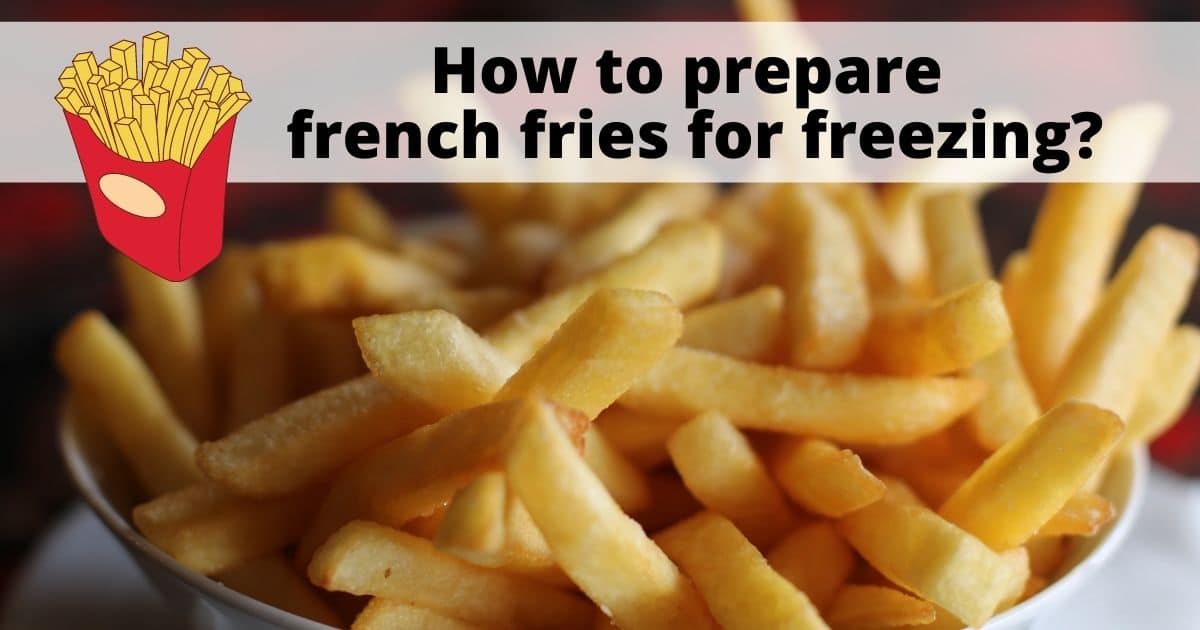
Step One
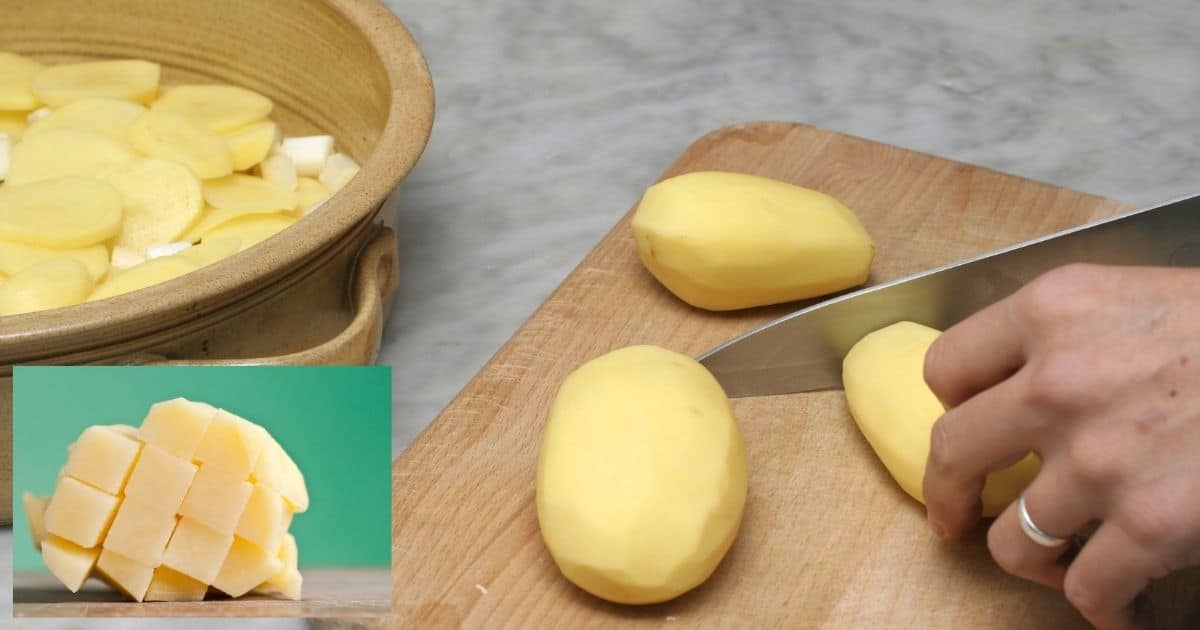
Peel the potatoes (or leave on, like I do). You can cut the potatoes into thin or thick slices.
Step Two
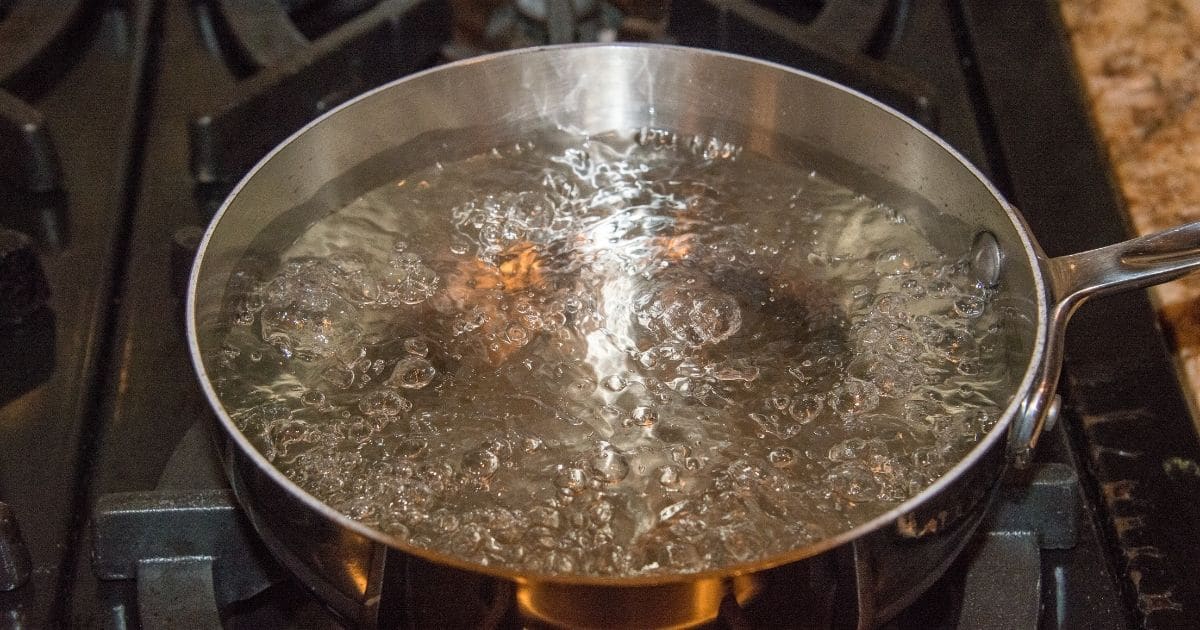
Blanch the fries for about 2 minutes in boiling water, adjusting the time according to the variety and size of the potatoes.
Step Three

Submerge the potatoes in an ice bath to stop the cooking process.
Step Four
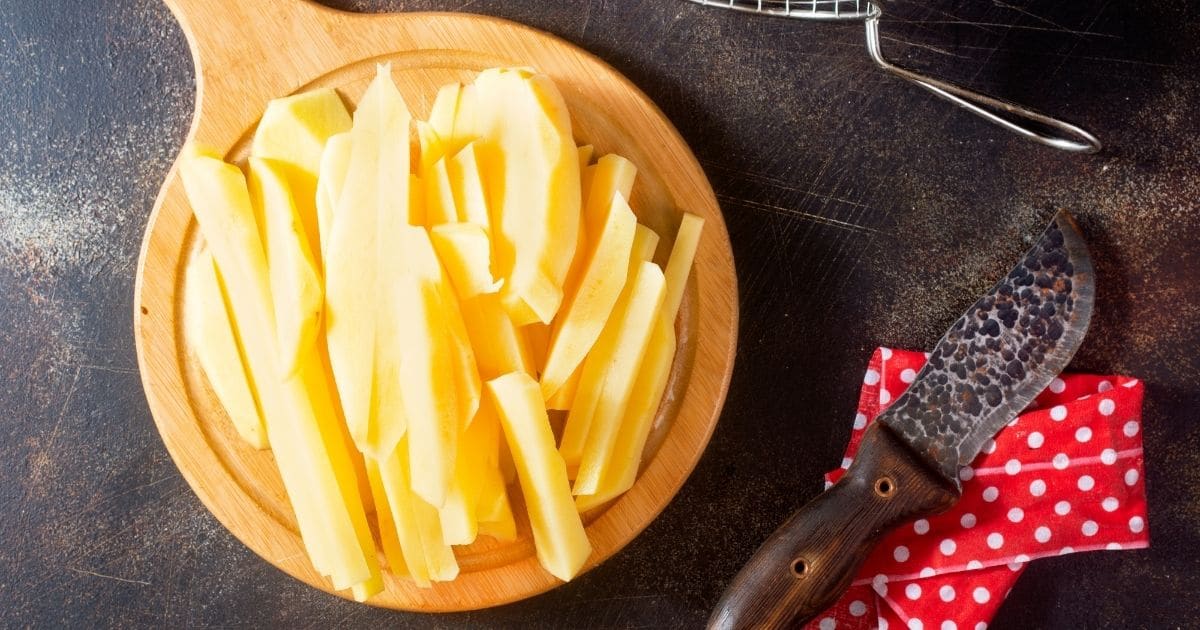
Drain the fries. Let them dry completely and toss in a little vegetable oil (about 1 tablespoon for every 2 pounds of potatoes).
Spread in an even layer on a parchment-lined baking sheet and freeze for about 6-12 (overnight) hours.
Step Five

Place the frozen fries to an airtight freezer bag and freeze for up to 6 months.
Are Potatoes Good After Being Frozen?
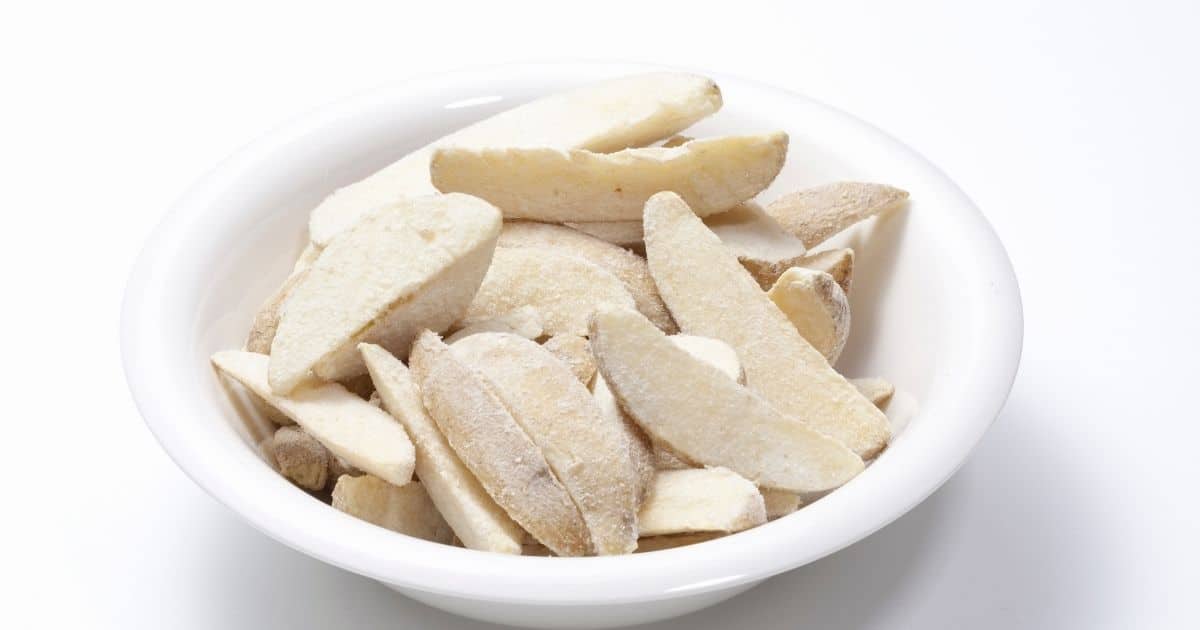
If your raw potatoes have been kept out in the garage and have accidentally frozen, the general consensus is they will not be good to eat. So, the short answer is no, raw potatoes are not good after being frozen (accidentally).
Once frozen, the cell structure changes, resulting in a poorly textured potato that lacks flavor once thawed and then cooked. Unfortunately, the only good place for these potatoes is the bin!
However, if the potatoes have been blanched then yes potatoes are good after being frozen. This is because blanching will slow the enzyme activity in the cell walls that cause the loss of colour, texture and flavor in the potatoes.
So, to avoid wasting your potatoes follow the blanching steps we give you in the “How Do You Prepare Potatoes For Freezing” section above.
Can I Boil Potatoes And Then Freeze Them?
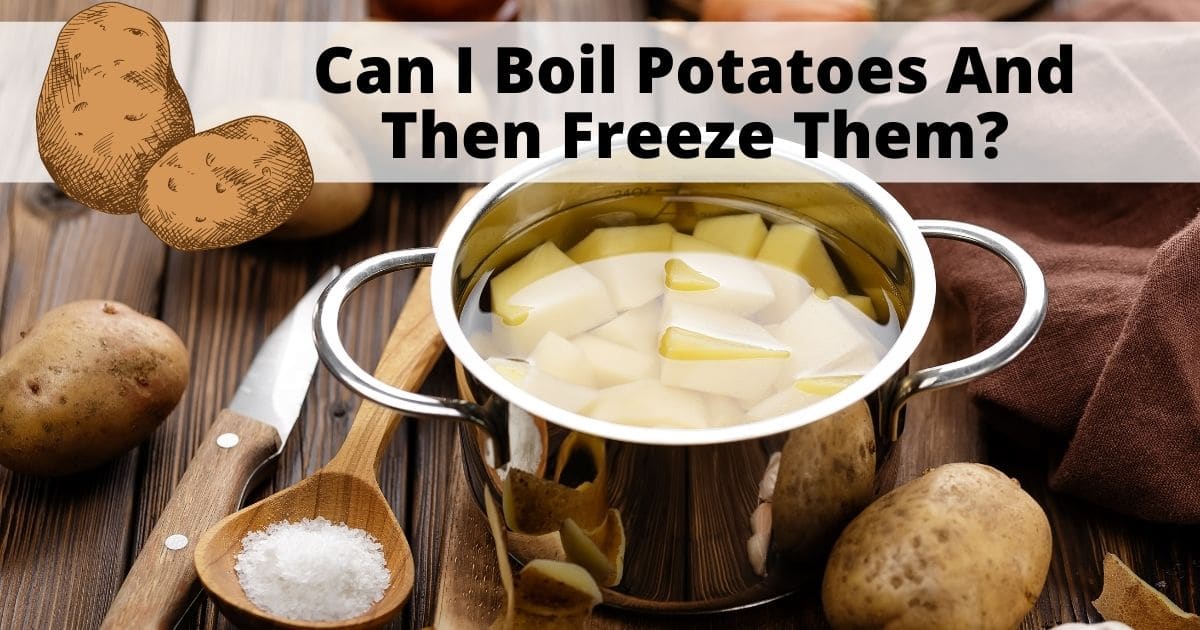
Yes, it is possible to boil potatoes and then freeze them, but in order for the potatoes to retain their flavor and texture, the boiling time needs to be carefully monitored so that it does not fully cook the potato. The potatoes then need to be immediately submerged in ice-water.
If the potatoes are fully cooked through boiling, they will lose their texture upon thawing, and you could end up with sloppy, grainy, or even worse, watery spuds!
Follow these steps for boiling potatoes prior to freezing:
Step One
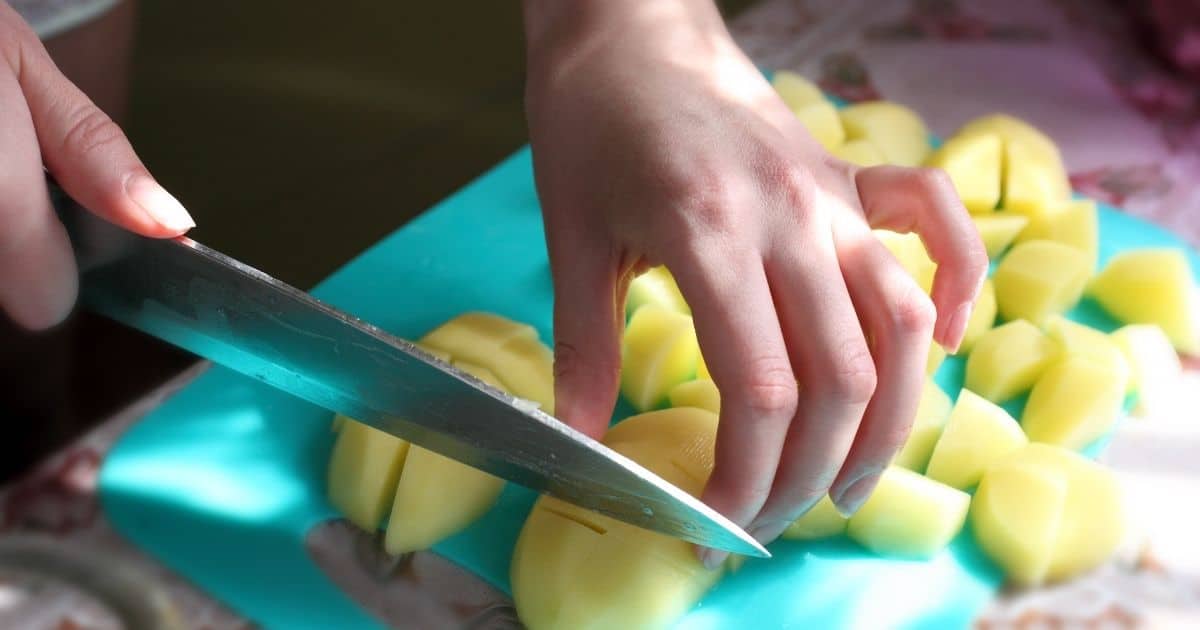
Cut and peel your potatoes to size.
Step Two
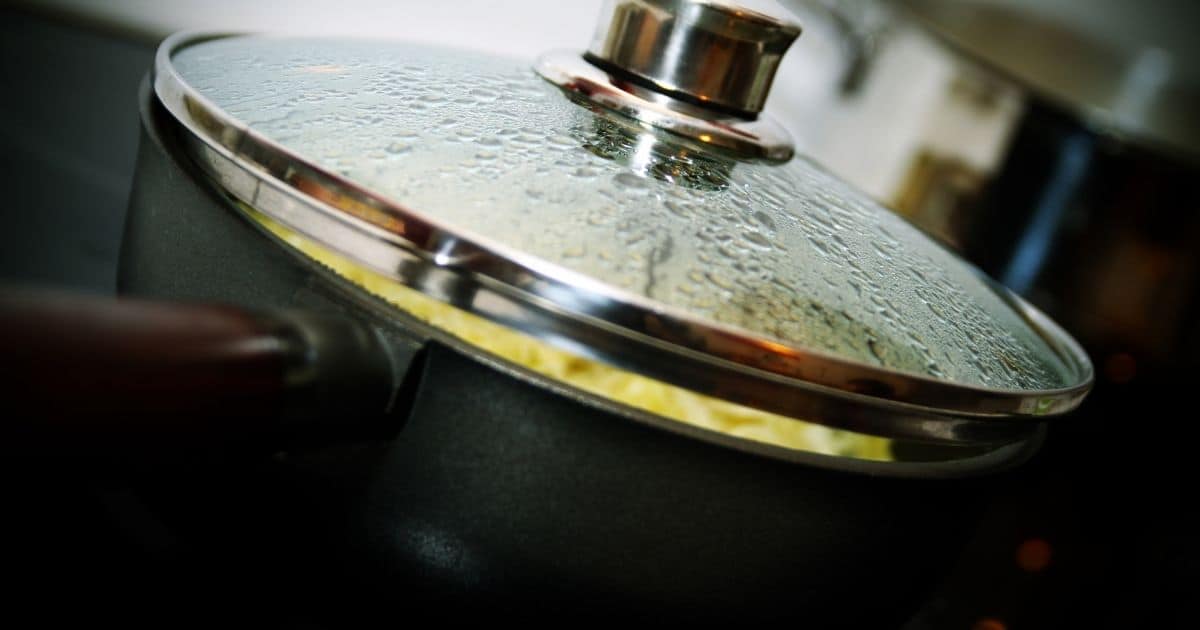
Boil the potatoes (approximately 5 to 6 minutes) until they are still firm.
Step Three
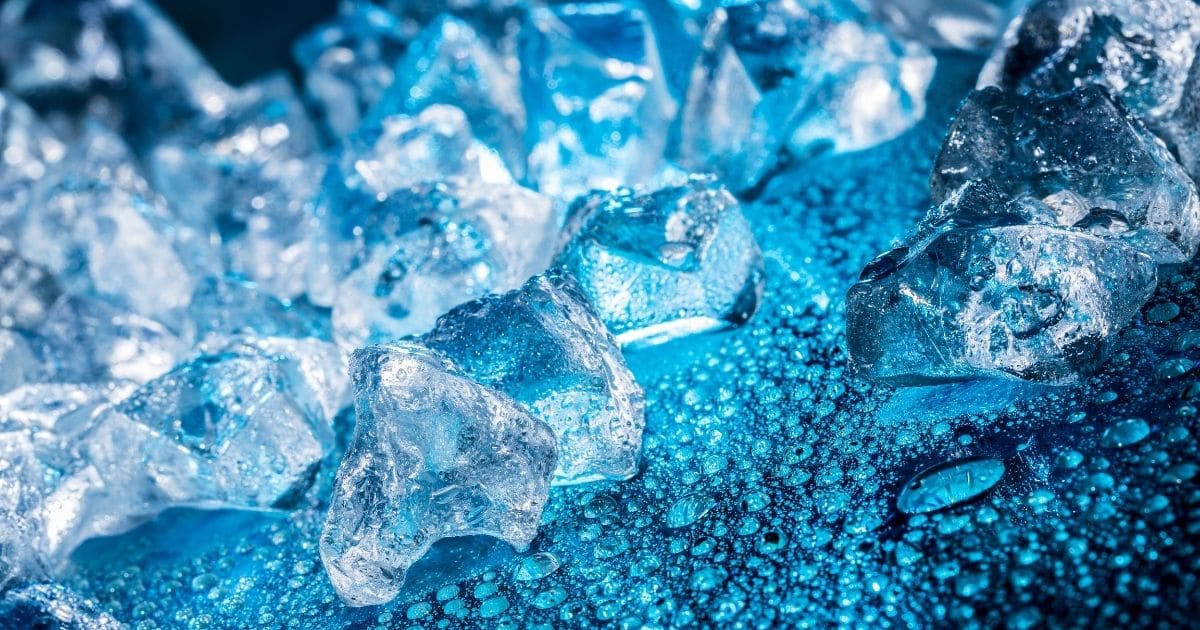
Plunge the potatoes into ice-cold water to ensure the cooking process ends.
Step Four
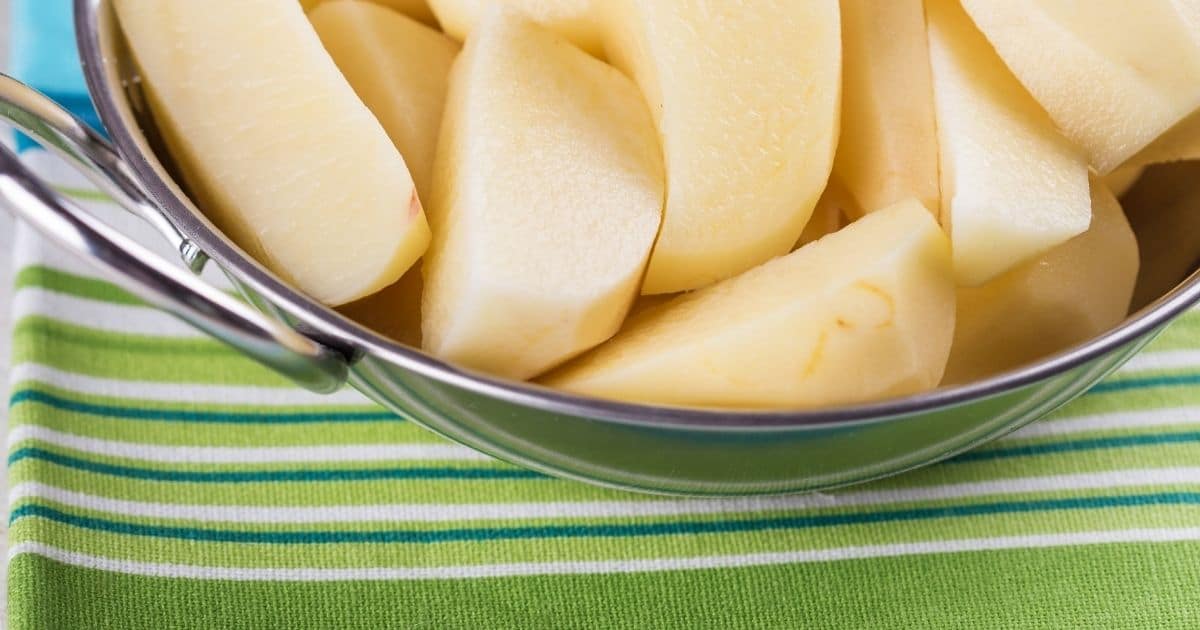
Drain the potatoes and pat dry with paper towels.
Step Five
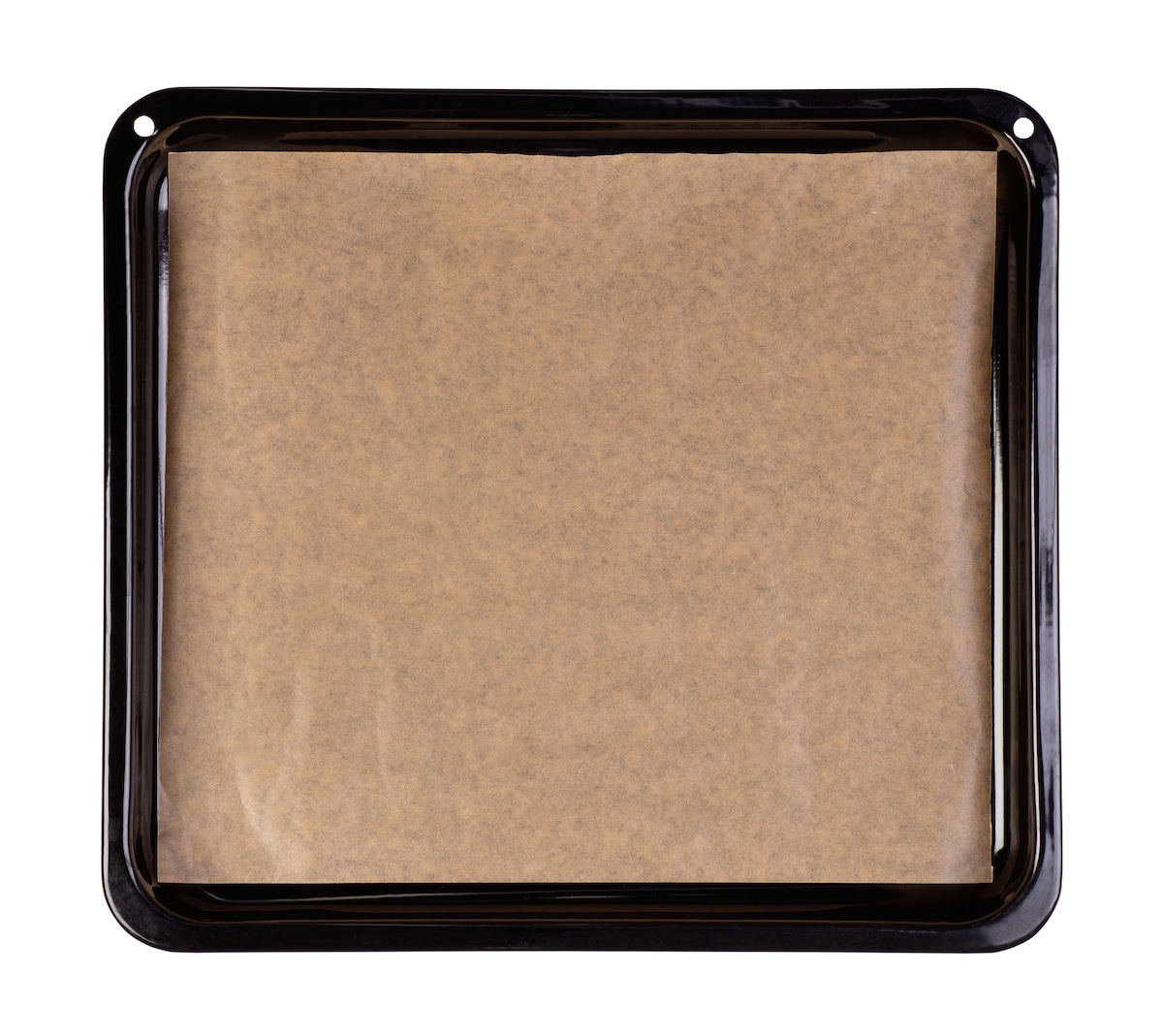
On a baking tray lined with parchment paper, spread out the cooled potatoes.
Step Six
Place the baking sheet in the freezer for two hours or until the potatoes are frozen solid. This avoids the potatoes clumping together.
Step Seven
Once the potatoes are frozen solid, you can transfer them to freezer-safe bags.
It is encouraging to note that when kept in the fridge, boiled potatoes will keep for about 3-5 days. However, when frozen, boiled potatoes will keep fresh for 10 to 12 months. This is ideal if you have lots of potatoes and do not want to run the risk of them going off.
Can Mashed Potatoes Be Frozen?
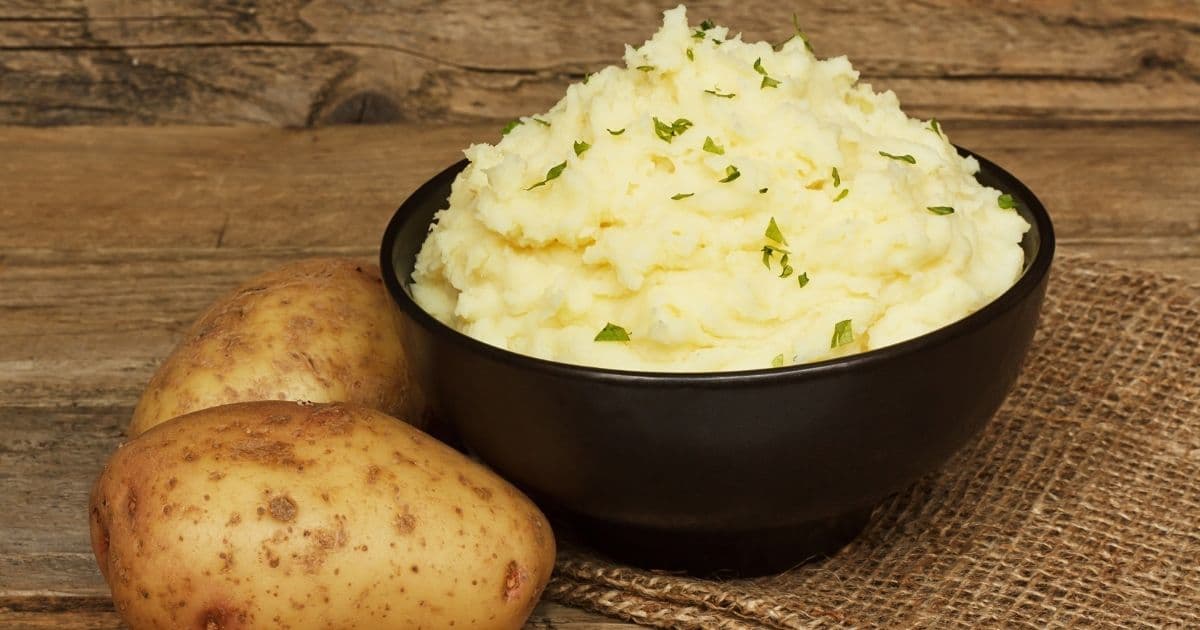
Absolutely yes, mashed potatoes can be frozen. In fact, of all the ways in which potatoes can be prepared before freezing, mashed potatoes are the best. Why? Mashed potatoes require plenty of fat (butter and milk/cream), and this helps them preserve their flavor, color, and texture when it comes to freezing and eventually reheating.
This is great news for all sorts of meals but arguably the most important for the quintessential Thanksgiving side. For more information on how to prepare mashed potatoes for freezing, visit our comprehensive guide here.
Can You Freeze Whole Potatoes With Skin On?
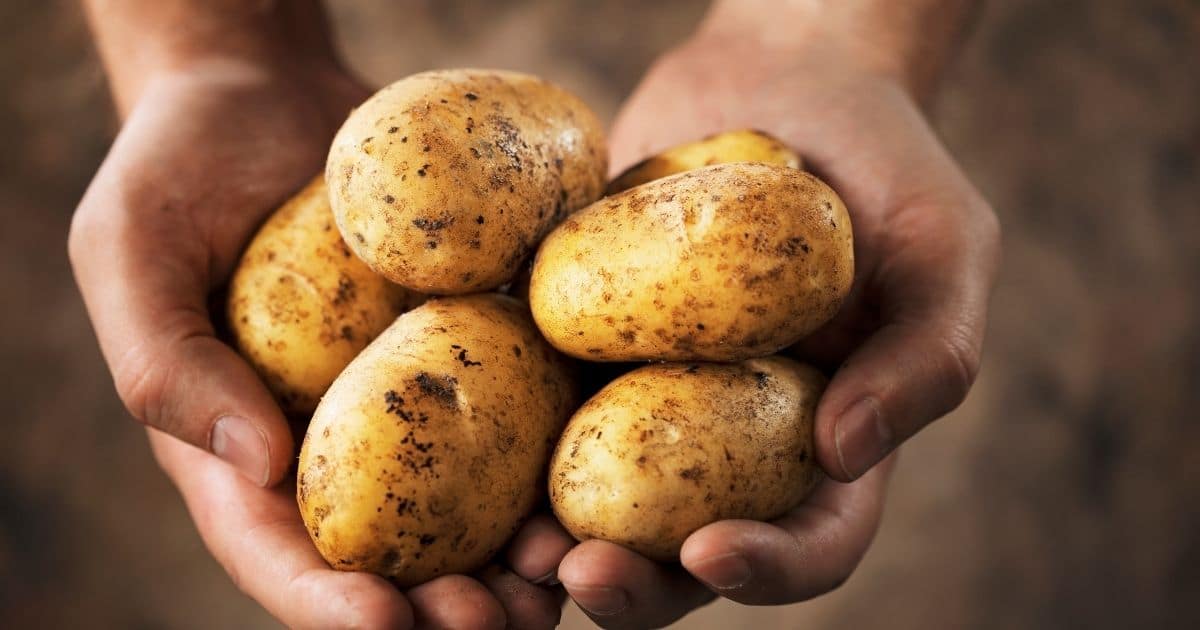
Yes, you can freeze whole potatoes with their skin on, but there is a small caveat. The caveat is the size of the potato in question.
As mentioned earlier, it is essential that potatoes are blanched prior to freezing in order to preserve their flavor, texture, and nutritional value. For the blanching process to work successfully with whole potatoes with their skin on, it is important the potatoes are of a smaller variety.
For example, new potatoes or baby potatoes would be suitable for freezing whole and with their skins on as the blanching process could penetrate the smaller, more delicate skins of these potato types.
Larger potatoes, such as baking potatoes, would be too difficult to blanch due to their size, and therefore, they would not be suitably prepared for the freezer.
The blanching process, which involves the rapid submerging of the potatoes in ice-cold water, stops the enzyme activity, which leads to the deterioration of the vegetable. If prepared properly for the freezer, these whole potatoes with their skins on can last up to one year in the freezer.
If you did want to freeze larger, whole potatoes with their skins on, it is highly recommended that you cut the potatoes. This will enable successful blanching and a suitably prepared potato for freezing.
How Do You Freeze A Jacket Potato?
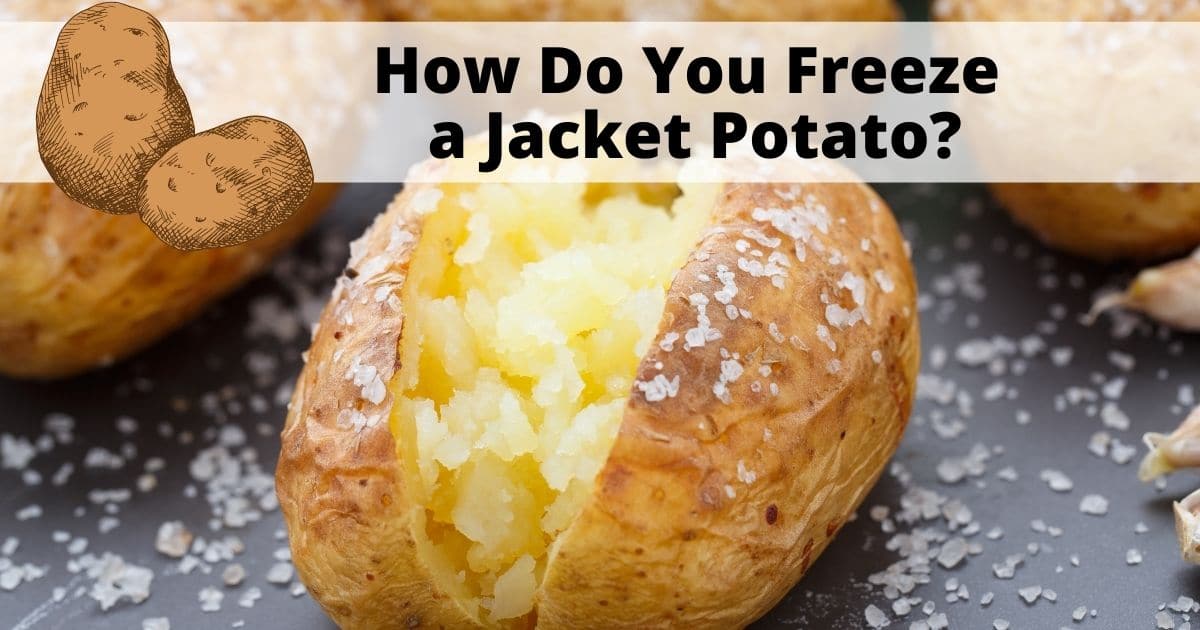
As satisfying meals go, the jacket potato or baked potato is high up on my list. However, with a large, baked potato taking at least an hour in the oven, it is not always a meal I can enjoy in my hectic week.
So, when I discovered that you can freeze jacket potatoes and that they will keep for 10 months to 1 year in the freezer (at 0 degrees Fahrenheit and packed properly), I knew this meal was going to be making a more frequent visit to my dining table.
These are the steps I take to freeze my jacket potatoes:
Step One
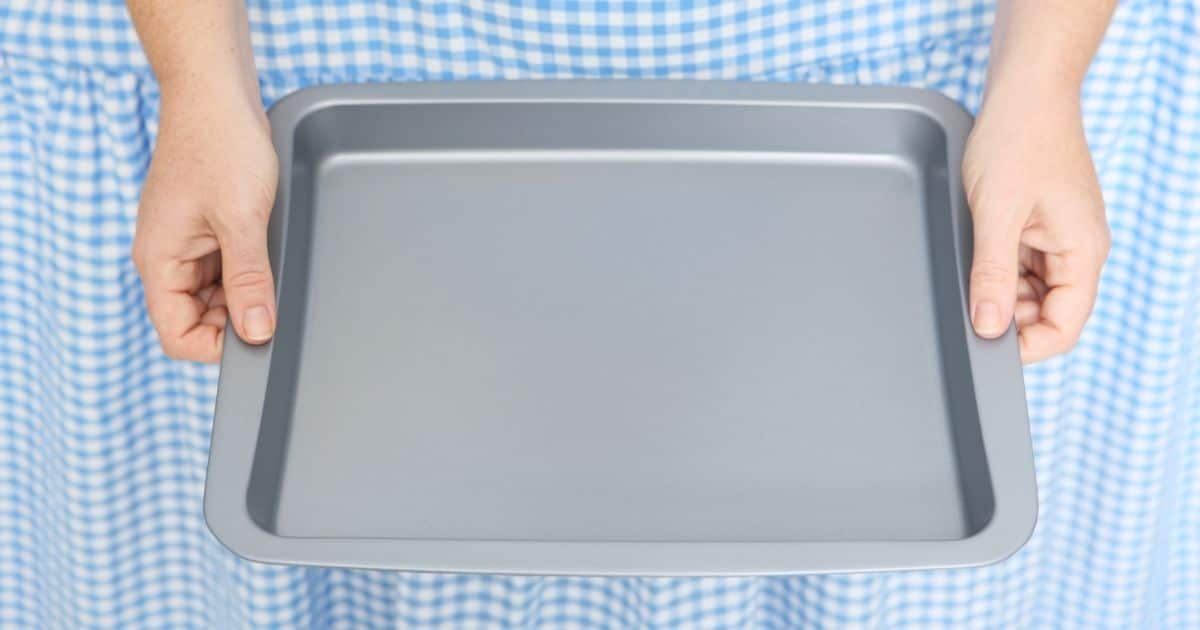
Bake the potatoes on a baking tray until soft. Do not add butter or any toppings.
Step Two
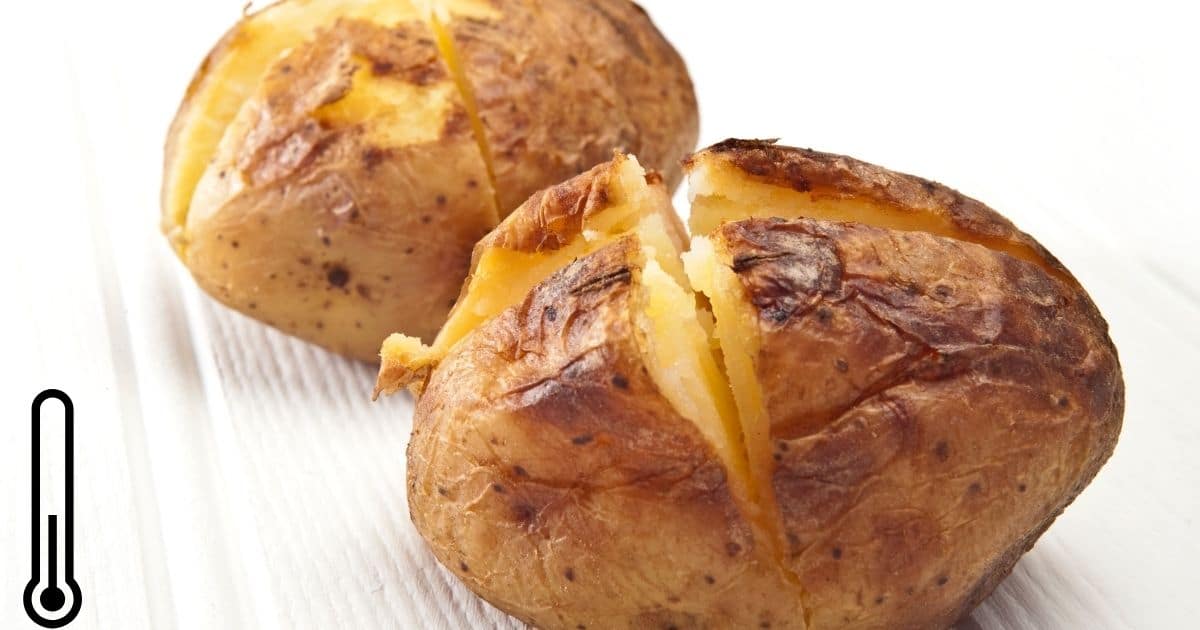
Let the jacket potatoes cool completely on the baking tray.
Step Three
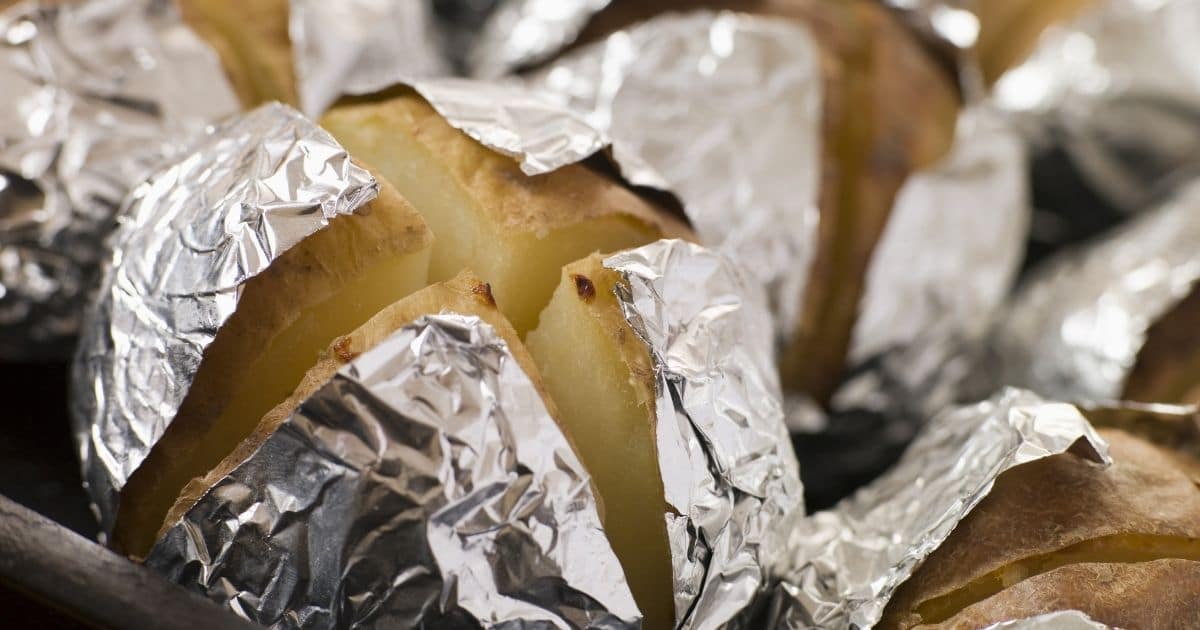
Once the potatoes have completely cooled, wrap the jacket potatoes in aluminum foil. If there are any gaps in the foil wrapping, the freezing air will damage the jacket potato and impair its flavor and texture.
Step Four
Place the wrapped jacket potatoes in large, heavy-duty freezer bags. Squeeze as much air out prior to sealing. Write the storage date using a marker pen and then place the bags in the freezer.
Can I Cook Potatoes From Frozen?
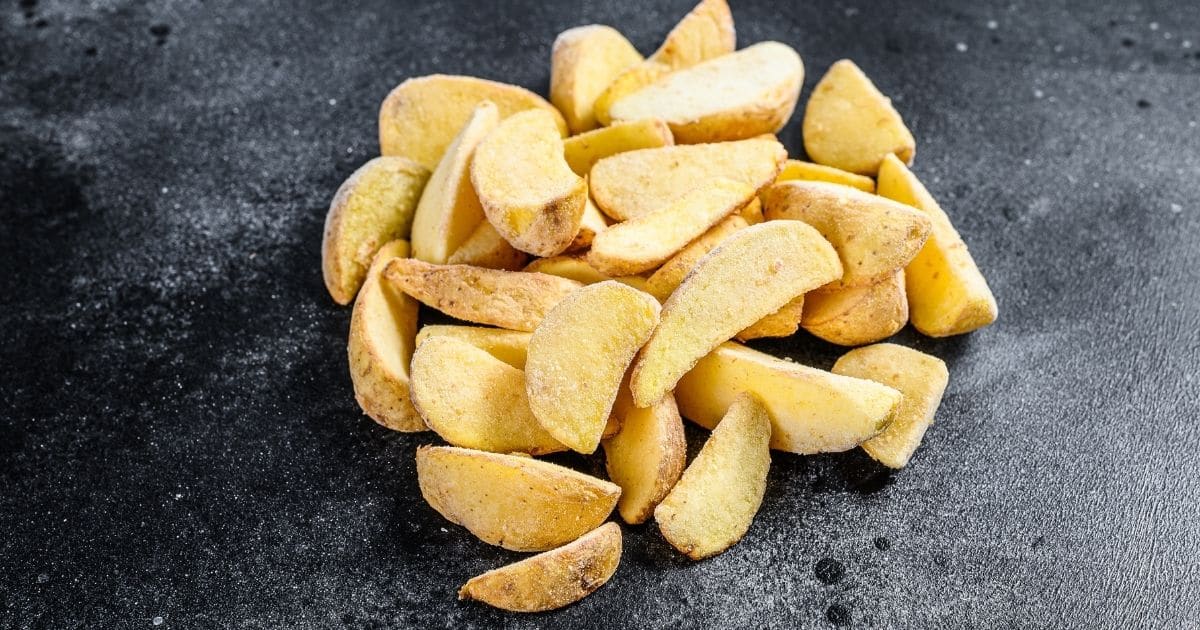
I am delighted to tell you that Yes, you can cook potatoes from frozen as long as the potatoes were blanched before freezing.
Simply grab your frozen potatoes, in whatever size or shape you prepared them, and cook them in your chosen method. Be it frying, boiling, roasting, or steaming, all ways of cooking are permissible for your frozen potatoes.
If it is the holiday season and you are limited in oven space, maybe the microwave can help you out.
How Do You Reheat Frozen Potatoes?
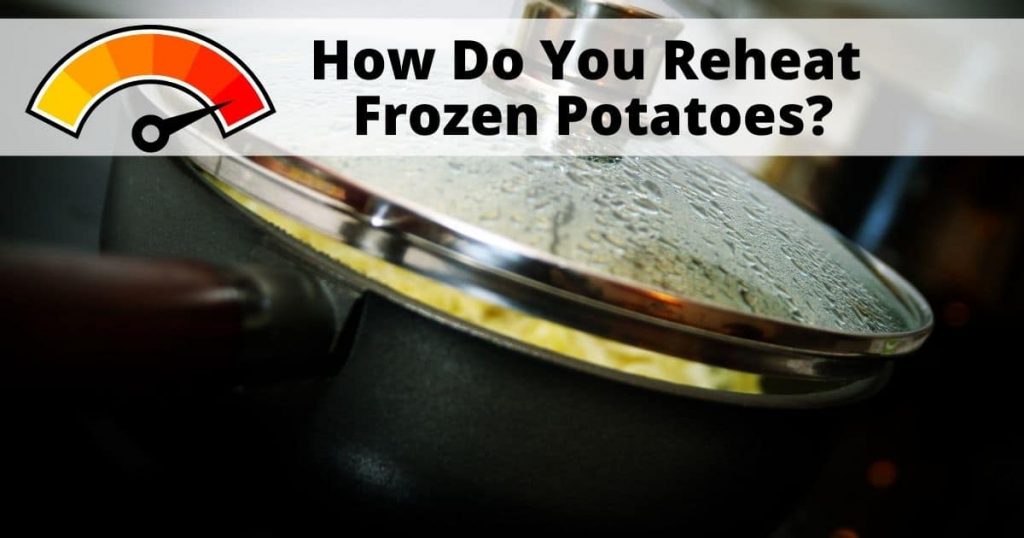
How you reheat your frozen potatoes will be different for the type of potato dish you are aiming for. Here I explain how to reheat frozen mashed or roasted potatoes.
For mashed potatoes, follow these steps:
Step One
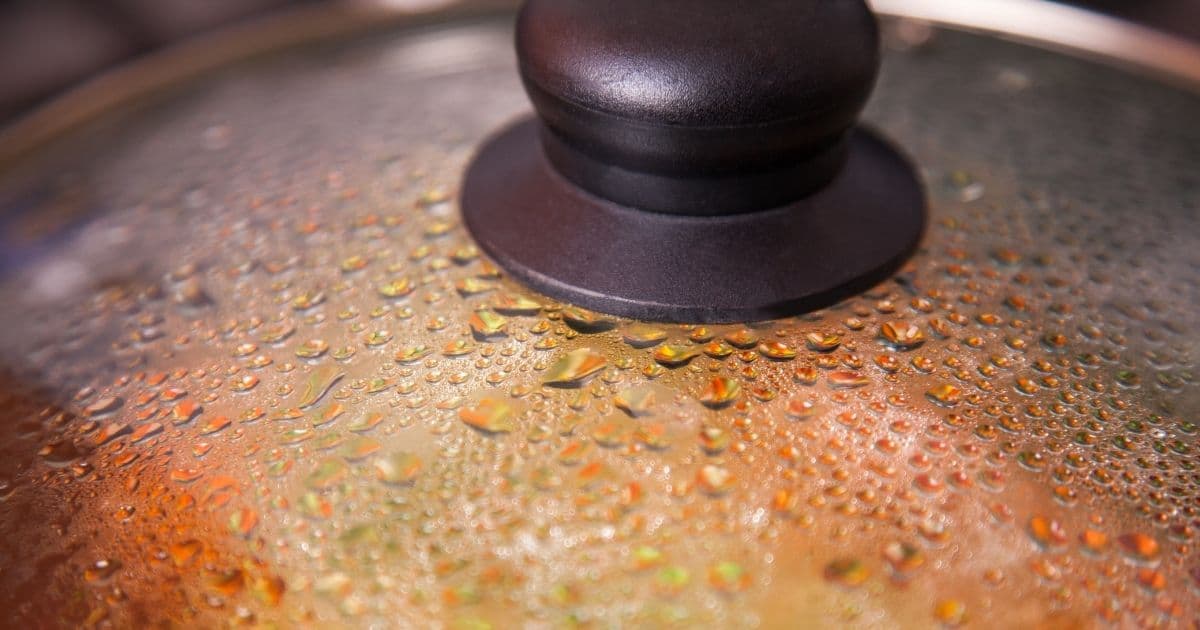
Place the frozen mashed potatoes into a saucepan and cover with a lid.
Step Two
Slowly heat the potatoes on low heat.
Step Three
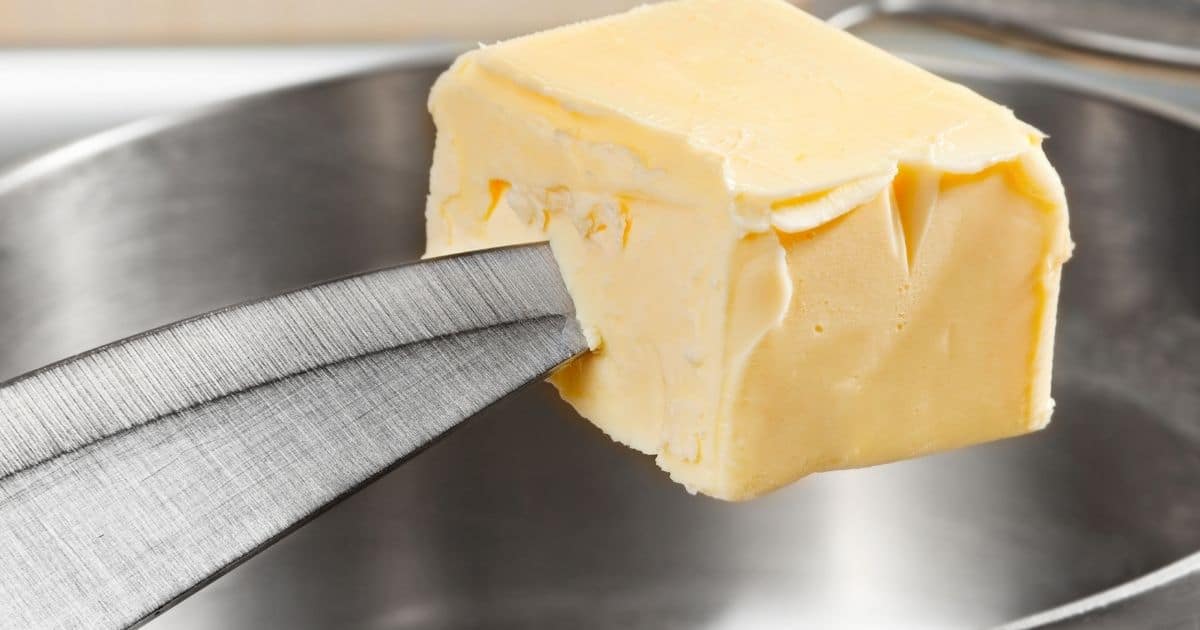
Add milk, butter, or cream if the potatoes look like they are drying out.
For roast potatoes, follow these steps for reheating frozen potatoes:
Step One
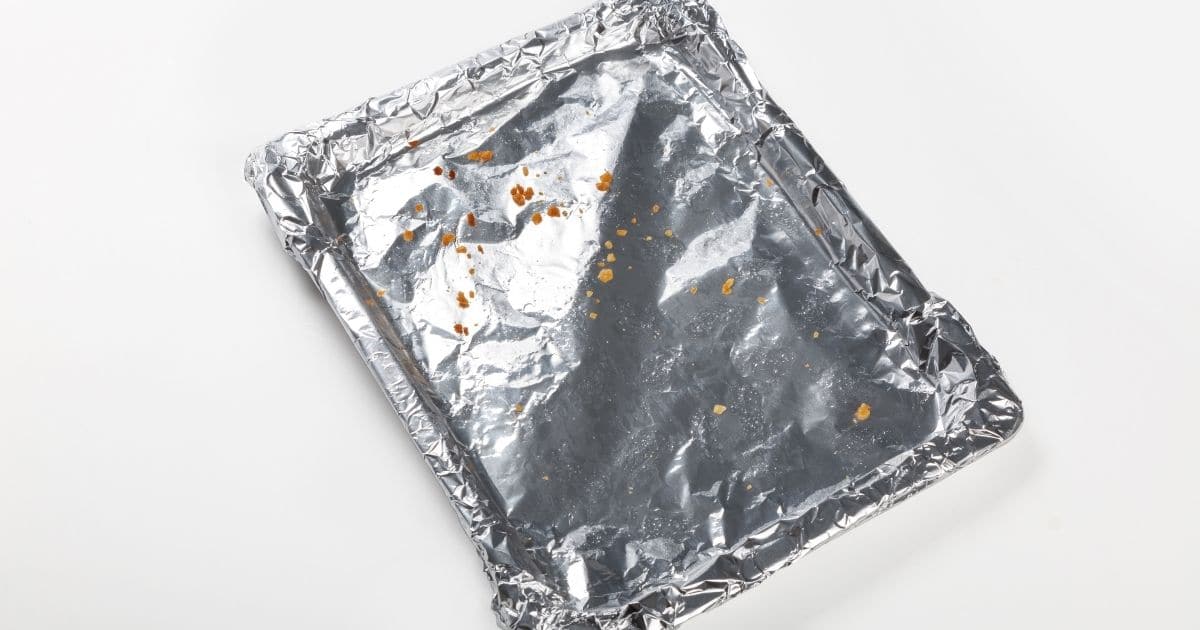
Line a baking tray with parchment paper or foil. Alternatively, you can add oil. This will help prevent the potatoes from sticking.
Step Two
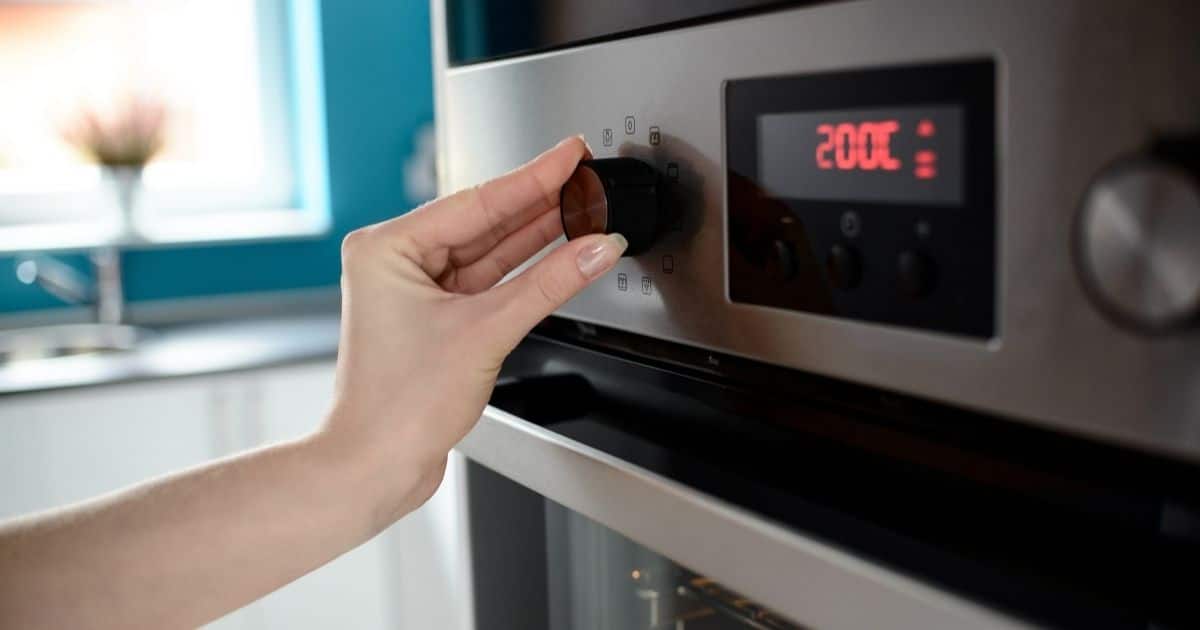
Preheat your oven to 400 degrees Fahrenheit.
Step Three
Spread the potatoes out evenly and in a single layer across the baking tray. Place a layer of foil over the potatoes as you start the reheating process. Reheat like this for 20 minutes. Check the potatoes and stir them about halfway through the process.
Step Four
Take the foil off and bake for another 5-10 minutes. This will allow the potatoes to crisp up well before serving.
Do Cooked Potatoes Freeze Well?
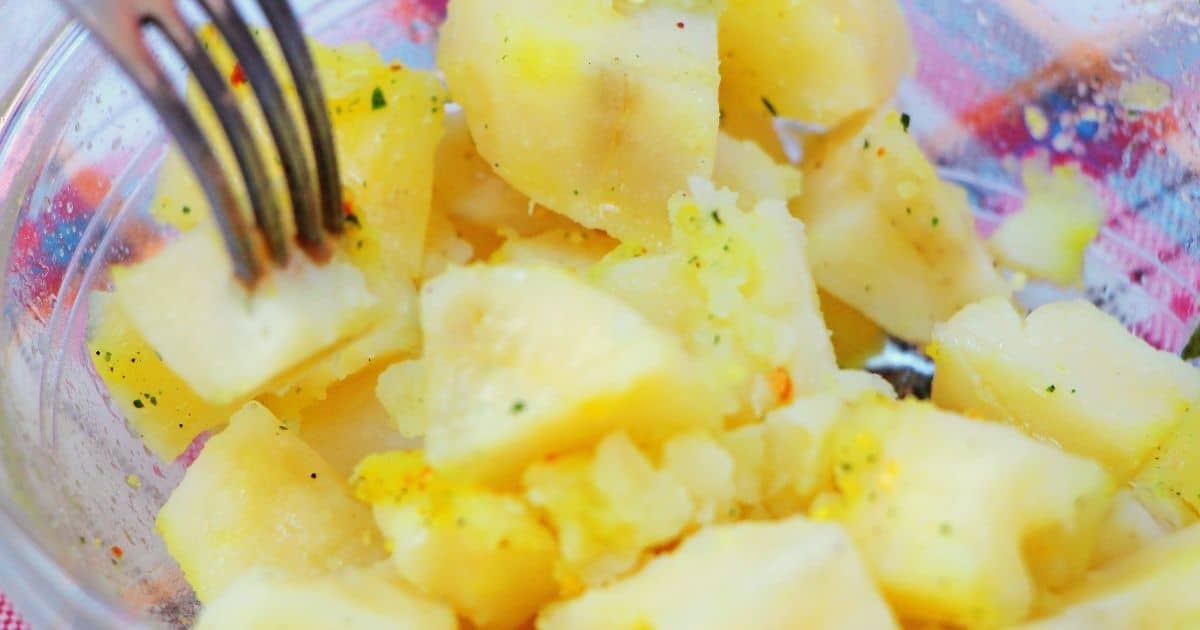
Yes, cooked potatoes can freeze well. You will need to make sure the cooked potatoes have been properly packed in airtight containers or heavy-duty freezer bags.
This will help to avoid any spoiling of the vegetable, which could result in it being soggy or grainy once thawed.
When cooked potatoes are stored correctly in the freezer, they will last well for 10 to 12 months, but they are still safe to eat beyond that time.
How Do You Store Potatoes In The Freezer?
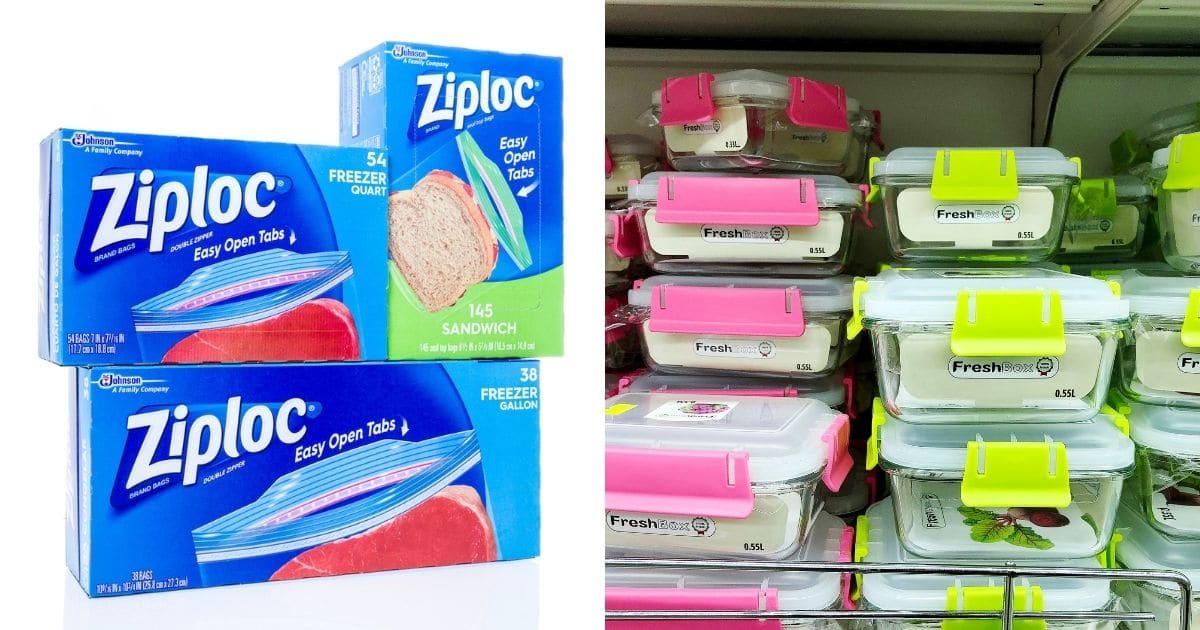
First and foremost, it is important that you store potatoes in the freezer that are at their optimal freshness. Luckily, blanched potatoes can be frozen with their skins on or off.
Freeze potatoes in airtight freezer bags, preferably in a single layer for quicker freezing and defrosting. It is a good idea to label the freezer bags with the storage date so you know how long they have been in your freezer.
Alternatively, you can freeze your potatoes in airtight containers. If stored correctly, whether in freezer bags or airtight containers, cooked potatoes should last 10-12 months in the freezer.
Why Do Potatoes Turn Black In The Freezer?

If potatoes turn black, it usually doesn’t occur when they are in the freezer but more likely once they have been defrosted. The reason potatoes turn black is due to their exposure to oxygen.
This can be avoided by keeping freshly sliced or peeled potatoes submerged in cold water and ensuring that potatoes are blanched prior to freezing. It is the blanching process that prevents this enzyme activity from blackening the potato when the potatoes are thawed.
Conclusion
Thankfully, I am not on an uninhabited island because I now plan to take full advantage of any sales on potatoes at my local grocery store. I now know that they can be safely stored in my freezer (after some minimal preparation) and are then ready to use for a variety of meals.
Potatoes can be frozen in numerous shapes and sizes, from skinny fries to chunky roast potatoes. Choose to freeze potatoes with their skins on or off. Choose new potatoes or baked. The options are endless.
One thing is certain, potatoes will remain a staple ingredient in my house!
